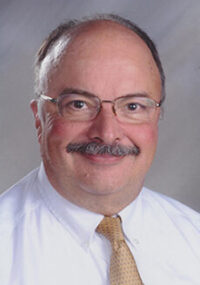Disciples cannot be cynics, must trust

Living the Word / By Tim Irwin
Second Sunday of Easter (Sunday of Divine Mercy) / April 24
Acts 5:12-16; Psalm 118:2-4,13-15,22-24; Revelation 1:9-11a,12-13,17-19; John 20:19-31
Alternative History refers to a type of speculative fiction that asks what if a given historic event had played out differently. What if the encounter between St. Thomas the Apostle and the Risen Christ recounted in this week’s Gospel from John, had played out in a culture more like that of contemporary America? First, here’s how it actually happened.
“Thomas, called Didymus, one of the Twelve, was not with them when Jesus came. So the other disciples said to him, ‘We have seen the Lord.’ But he said to them, ‘Unless I see the mark of the nails in his hands and put my finger into the nail marks and put my hand into his side, I will not believe.’” Thomas is a skeptic and that’s not all bad. A little skepticism can save one from being duped.
“Now a week later his disciples were again inside and Thomas was with them. Jesus came, although the doors were locked, and stood in their midst and said, ‘Peace be with you.’ Then he said to Thomas, ‘Put your finger here and see my hands, and bring your hand and put it into my side, and do not be unbelieving, but believe.’ Thomas answered and said to him, ‘My Lord and my God!’ Jesus said to him, ‘Have you come to believe because you have seen me? Blessed are those who have not seen and have believed.’”
BUT WHAT IF. . . ?
Here is my attempt at an alternate history, if Thomas had been more like contemporary Americans.
“Now a week later his disciples were again inside and Thomas was with them. Jesus came, although the doors were locked, and stood in their midst and said, ‘Peace be with you.’ Then he said to Thomas, ‘Put your finger here and see my hands, and bring your hand and put it into my side, and do not be unbelieving, but believe.’”
“Thomas answered and said to him, ‘How do I know that you are really Jesus? Maybe you faked those wounds. I don’t think you are Jesus. Are you working for the Pharisees in an attempt to promote belief in the resurrection? Then again, maybe you’re in cahoots with the Sadducees trying to discredit a belief in the resurrection. I bet you’re not even Jewish. Are you a gentile secretly advancing the oppressive rule of our Roman overlords?'”
Thomas the skeptic has transformed into Thomas the cynic. He has gone from being a doubting Thomas to being a distrusting Thomas. The cynic Thomas suffers from a chronic disbelief in the sincerity and the goodness of others. He does not trust their motives or intentions. Thomas the cynic assumes that people with other views and values want to discredit him and he certainly prefers to discredit them rather than convert them. This nasty business may escalate into a zealotry that drives the cynic to violence against all who he distrusts. Cynicism may also contribute to cultural nihilism or the view that nothing is true or of value so in the last analysis, life is without meaning or purpose leaving us to wallow in our feelings of distrust.
HAVE COURAGE
Like Thomas, we may be excused for being a skeptic. But, if we wish to experience the joy and contentment that arises from being a disciple of Christ, we simply cannot be a cynic.
Cynicism is the sin against the Holy Spirit. We need the Holy Spirit to help us muster the courage to believe in these cynical times.
This Sunday is Divine Mercy Sunday, a special opportunity to be forgiven of any cynicism that we may harbor. Let us pray this Sunday that we can escape the trap of cynicism and profess in all sincerity, “Jesus, I trust in you.”
—
TIM IRWIN teaches theology and philosophy at Notre Dame High School in Peoria. He is a member of Blessed Sacrament Parish in Morton.





